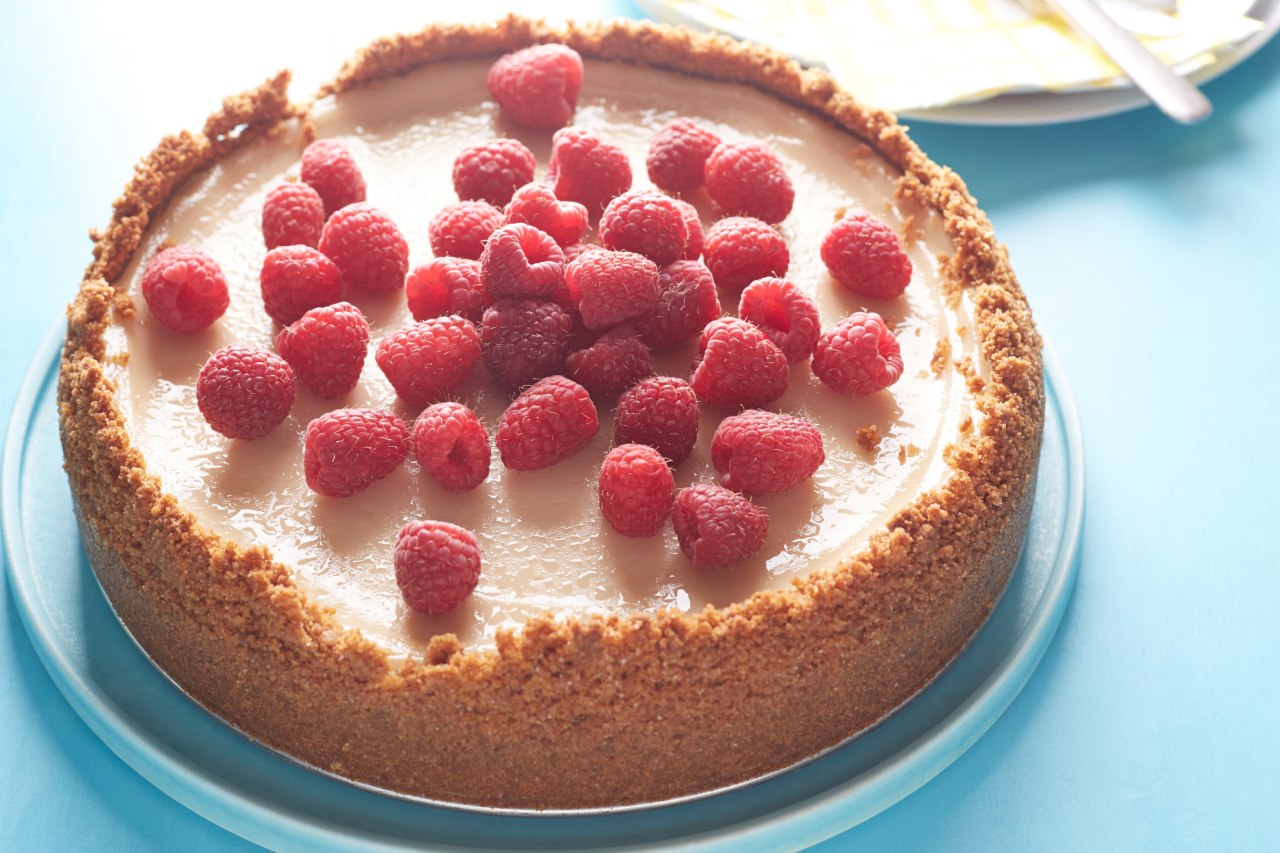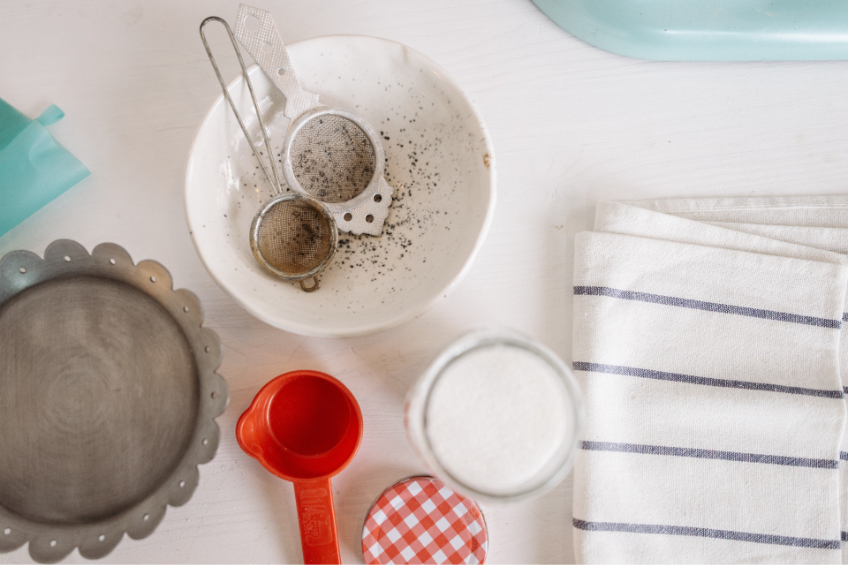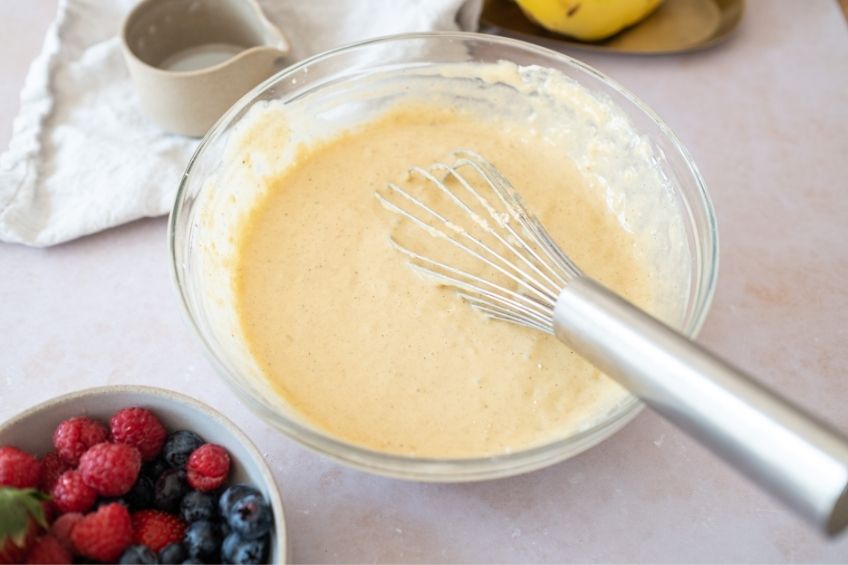
If you like to be creative in the kitchen, riffing on a recipe when you’re making dinner or a new appetizer can be fun. But when it comes to baking desserts, there’s an exact science required. That can make whipping up a cake, cupcakes, or squares slightly stressful. But it needn’t be.
As the bakers on Bake It ‘Til You Make It prove, you can be creative when it comes to desserts, and cakes in particular. You just need to know where you can create and when to follow the recipe. In that vein, we’ve put together a list of common mistakes in baking that most people make. Are you guilty? Read on to find out!
Watch Bake It ‘Til You Make It, Mondays at 10PM ET/PT on Food Network Canada. Also Available on STACKTV with Amazon Prime Video Channels, fuboTV, Rogers Ignite TV and Ignite SmartStream.
Related: Quick Tips to Elevate Your Kitchen Skills
Not Prepping Your Pan
There’s nothing worse than going to all the work of making a cake only to have it stick to the pan and crumble in the end. To avoid this cake-baking mistake, remember to properly prepare your pan. Use parchment paper, non-stick spray, or a combination of shortening or butter and flour to ensure that the cooled cake lifts out easy peasy. Speaking of…
Handling When Hot
Unless your recipe specifically states that you should remove your cake from the pan right out of the oven, make sure to cool your cake for at least 10 to 20 minutes before handling it. The timing is important, too. If you try and remove your cake too soon, it could fall apart. But if you wait too long, it could stick. Follow the directions, however, and you should be set (pun intended).
Related: Lemon Elderflower Cake With Edible Flower Confetti
Using the Wrong Measuring Cups
Did you know there is a difference between liquid and dry measuring cups? It’s important to use the correct ones when baking a cake to ensure proper measurements, especially if you’re not weighing your dry ingredients. Liquid cups are usually transparent with a handle and markings on the side. Dry measuring cups are like little ladles so that you can skim off any extra dry ingredients from the top before adding them to your mixture.

Pexels
Using Expired Ingredients
No one would purposely use expired milk or eggs while baking. But when is the last time you checked the expiry date on your baking soda or baking powder? These ingredients won’t spoil, but they do become less effective at helping your cake rise and spread correctly over time. So if you’re not getting the best results, be sure to check those bottles and see how old they are!
Related: 10 Best Baking Recipes For Beginners
Using Cold Ingredients
One of the biggest baking mistakes people make is using cold, rather than room temperature, ingredients. By taking the extra time and letting your ingredients come to room temperature, you’ll wind up with a much more moist and delicious final product. Why? Cold ingredients can curdle your batter and create lumps, whereas room-temperature ingredients like butter and eggs will help the batter to blend better.
Over-Mixing Your Batter
If you do have lumps in your batter, you may be tempted to mix the heck out of them. Don’t, because that will make matters worse. When you mix flour and liquids, it activates gluten proteins. Those proteins are what give cakes their structure. If you overmix, however, it could lead to a cake with a chewy or tough texture rather than that light and fluffy bite you love.

Choosing the Wrong Pan
It may seem simple, but choosing the right pan can make or break your cake. If you select a pan that’s too small, the batter can run over while baking, burn, and create a hot mess. If you choose a pan that’s too large, then the sides will slow down the baking process. Recipes usually state which sized pan you should go for, so be sure to follow those instructions.
Opening the Oven
If you really want to check on your cake, use your oven’s light setting. But no matter how tempted you may be, don’t open that door. Doing so is a common baking mistake, and it could stop your cake from rising. Why? That rush of cold air stops the baking process, shocking your cake into frumpy submission.
Related: A Guide on the Most Common Vegan Baking Substitutes
Ignoring Your Oven
It may seem like an extra detail, but knowing your oven is also an important step in baking a successful cake. Most ovens have hot spots, so knowing where yours are and baking around them can help you avoid this common baking mistake. If you don’t know, preheat your oven to 350°F. Then, line slices of bread along the bottom rack. The pieces that toast up quicker and darker are where your oven is hottest. Slices that maintain their colour will tell you where your cooler spots are.
Substituting and Doubling
Because baking is an exact science, substitutions don’t always go over so well. In fact, they can throw off the entire recipe. If you have specific food allergies or diets, it’s best to find a recipe that works for you rather than muddling with your own substitutions. Meanwhile, doubling a recipe is a recipe for disaster. Why? Well, baking is chemistry, and even the smallest tweak could throw everything off. The larger the recipe, the fewer leaveners you need, for example. Meanwhile, doubling certain spices could throw off the cake’s entire flavour. If you really want to double the recipe, make two separate batches.
